Big Boned ху-3 Read online
Page 18
Except one. Make that two. There, high up in the bleachers, I see them. Jamie and Gavin. Holding hands. And, yeah, okay, right at that particularly moment, making out.
But they’re there, and not because someone threatened them, but to show their respect. My eyes fill with tears. God, what’s happening to me? I’ve never been this emotional over a murder victim in my building. It’s not like there haven’t been plenty. And I didn’t evenlike this one.
Dr. Jessup coughs into the microphone, and I turn back to face the podium. The head of housing thanks Reverend Mark for that fine eulogy, then announces that from now on, the Fischer Hall library will be known as the Owen Leonard Veatch Library. A plaque is being engraved, and there will be a hanging ceremony as soon as it’s finished.
This announcement is met with applause, after which Dr. Jessup asks that donations for the Owen Leonard Veatch Library be sent to the administrative offices of Fischer Hall.
Oh, so great. Now I’ll be keeping track of checks all day, on top of everything else. Dr. Jessup adds that for those who wish to attend, there’ll be refreshments served on the main floor of the sports center (in front of the fitness office) from six o’clock this evening until six-thirty.
The youth choir startles just about everybody then by suddenly bursting into a particularly spirited rendition of a song from the musical Hair. It isn’t just that “Good Morning Starshine” is the type of song you’d never expect to hear at a memorial service. It’s that “Good Morning Starshine” is a song you’d never expect to hear anywhere. The Mrs. Veatches, though, appear to be enjoying themselves, along with Mrs. Allington. Every single one of them is holding a tissue to the corner of one eye. Even Mrs. Veatch Senior has woken up a little, and is asking, in a loud voice, “Is it over yet? Is it over?”
Sadly, the song ends way too soon, and Dr. Jessup returns to the microphone to say, “And now, the person with whom Dr. Veatch worked most closely while he was here on campus, the assistant director of Fisher Hall, our own Heather Wells, will say a few words. Heather?”
My heart, which had seemed to return to normal since Cooper drove off, does this weird swoopy thing inside my chest. I’ve never had a problem with stage fright when it comes to singing. You can, after all, hide behind the song. But when it comes to public speaking—forget about it. I’d seriously rather be hanging by an elevator cable or be roofied by a psychotic frat president than have to get up and speak in front of all these people.
I clutch my notes and try to swallow my fear, taking no comfort at all in Tom’s whispered “You can do it!” and Muffy’s “Just picture ’em all in their boxers and panties!” That kind of thing works great on The Brady Bunch, but in real life? Not so much.
I make my way to the podium, wishing more than ever I’d thought to stop home first to change. I’m dressed, I realize, no differently than any of the students.
Convinced I’m going to hurl, I turn to address the sea of faces I see before me—and only then realize I recognize more of them than I’d previously realized. Like, sitting directly in the middle of the folding chairs before me, Tad, who raises a hand and smiles encouragingly. I manage a queasy grin back…
… which fades as soon as I realize that seated not four rows behind him is Cooper, who raises a hand as well, thinking I’m smiling at him.
Oh God. I’m going to hurl. I just know it.
Glancing down at the note cards I’ve stacked on the podium, I shake my head. I can’t do this. I can’t. Why can’t I just chase down Reverend Mark and kick him in the back a few times? It would be so much easier.
“Hi,” I say, into the microphone. My voice echoes disconcertingly throughout the gym. Hi… hi… hi. “Um… The day I met Dr. Owen Veatch, the first thing he unpacked in his new office at Fischer Hall was a Garfield Month-at-a-Glance calendar.”
I look out at the audience to see how they’re receiving this information. They all look back at me stonily. Except Tom. He’s buried his face in his hands. And Tad. He’s smiling encouragingly. Cooper just looks confused.
That’s when I notice my dad, in a chair next to Cooper’s. Oh God. My dad is here, too? Seriously, this is proof there is no God.
“Dr. Veatch,” I go on, “loved Garfield—more, it turned out, than I ever knew. So much, in fact, that he adopted a big orange cat that looked just like him, and named him Garfield. And when that cat developed thyroid disease, what did Dr. Veatch do? He didn’t worry about the expense of caring for a sick animal, or put him down. He gave Garfield pills for it. That’s the kind of man Dr. Veatch was. The kind who loved his cat, Garfield.”
I glance at Pam Don’t-Call-Me-Mrs. Veatch. She’s crying, and gazing up at me happily. Well, good. That’s who this is for, after all. The people who’d really cared about Dr. Veatch. And Garfield. I’m doing the right thing. I know it.
Even if I can see that Tom is currently sticking his finger down his throat and making gagging motions.
“The last time I saw Owen,” I go on, “he was sitting at his desk, writing the speech he was going to give the senior RAs at their graduation dinner at the end of the month. Commencement was Owen’s favorite school function, he told me, because it was a celebration, he said, of accomplishment. Not just the accomplishments of the students, but the accomplishments of the staff of New York College. Commencement was one of the few concrete proofs Owen had that our efforts were a success. Every senior who graduated from New York College was a personal victory not just for us administrators, but all of the staff of the college.” I look directly at President Allington as I say this. “Everyone who pulled together to help the students pass their classes and get their degrees, from the teaching assistants who graded their exams to the custodians who kept their classrooms clean.”
I’d like to say that at this moment, President Allington stood up, said he realized I was right, and declared that he was ending the strike and capitulating to all the demands of the GSC.
But he just keeps his head down, obviously still playing Fantasy Football.
“I don’t know much,” I go on, “about what happens to us when we die. I don’t know anything about the afterlife. But I do know this. And that’s this year, Owen will be sorely missed at New York College’s commencement ceremony. But I can’t help feeling that he’ll be there in spirit… just as he’ll always be here, in our hearts.”
There is a moment of total silence following this last part of my speech. Then there is some applause, polite at first. Then, thanks to Cooper standing up and thundering, “YEAH!” and making very loud noises with his palms, followed very shortly by Tad, after first throwing a startled look over his shoulder, then leaping to his feet and doing the same thing, the applause becomes more heartfelt, until soon the entire audience is on its feet, everyone applauding warmly.
A few seconds later, Brian—the same Brian who’d shown up earlier that morning with Mr. Rosetti at Fischer Hall—hurries up to replace me at the microphone, murmuring nervously, “Uh, thank you? Thank you, Heather. Uh, thank you, everyone. Like, Dr., uh, Jessup said, if you want, there will be refreshments in front of the fitness office upstairs. So. That’s all. Good-bye.”
The youth choir, perhaps inspired by this news, bursts into song. Their choice?
“Kumbaya,” of course.
18
All the money in the world
Can’t buy this heart or ruin this girl
’Cause I know where I’m going and where I’ve been
And that’s a road I won’t take again
“Can’t Buy Me”
Written by Heather Wells
“You know,” Pam Don’t-Call-Me-Mrs. Veatch says, her eyes pink from tears. “Owen spoke very fondly of you. I believe that you and Garfield were probably the two people he was closest to in the world at the… end.”
“Wow,” I reply. Which seems inadequate. But what else are you supposed to say when someone tells you something like this? “Thank you, Pam.”
The thing is, if this is true, it�
�s completely unsettling. Until he’d been killed, I’d rarely, if ever, given Owen Veatch a thought outside of working hours.
But I smile at the Mrs. Veatches, who’d gathered around me as soon as the memorial service was over like a couple of hungry lionesses around a wounded gazelle. I tried not to look too desperate to escape.
“Owen once told me that you were the fastest typist he’d ever seen,” Mrs. Veatch Number One (Owen’s mom) says, with a watery smile.
Pam nods. “He did,” she confirms.
“Well,” I say. “Thank you, Mrs. Veatch. And… Pam.” Owen was obviously talking about someone else. I type like twenty words a minute.
I look around the atrium we’re standing in—the main floor of the student athletic center, which has been transformed into a temporary wake, with long tables set up for punch and cookies. Of course, no one has bothered to close the sports center off to the students, so there are still people in sweats walking through the mourners, showing IDs to the temporary security officers (provided by Mr. Rosetti, and looking quite unlike our own security officers, in that they are considerably larger and more menacing in appearance) in order to get in, then glancing curiously at the floral wreaths and asking, “Is this some kind of ice cream social?”
I am doing my best to avoid certain parties who have shown up, but I don’t seem to be having much success. This is made more than clear when Dad touches my arm.
“Um,” I say. “Hi, Dad.”
“Hi, honey,” he says. “Can I steal you for a minute?”
Great. I need this like I need… well, a bullet in the head.
“Sure. Pam—Dad, this is Pam, Owen’s former wife.”
“Pleased to meet you,” Dad says, pumping Pam’s hand. She’s changed from the creepy rag doll sweatshirt to a subdued black suit. I introduce him to Mrs. Veatch Number One, as well, then walk with him toward a large potted palm sitting by a huge glass wall, part of the atrium that overlooks the school’s indoor Olympic-sized swimming pool, below. The air smells pleasantly of chlorine. I have a feeling the scent is the only thing about this conversation that’s going to be pleasant.
“Thanks for coming, Dad,” I say. “You didn’t have to. It means a lot that you did. You didn’t even know Owen.”
“Well, he was your boss,” Dad says. “I know how much this job means to you. I don’t exactly understand why it means so much. But I understand that you love it.”
“Yeah,” I say. “About that—”
He holds up a single hand, palm out. “Say no more.”
“I’m really sorry, Dad,” I say.
I mean it, too. I am sorry. Well, for Mandy Moore.
“I have to say, if I hadn’t heard that speech you just gave down there about your boss,” he tells me, “I’d have thought—well, that you were making the biggest mistake of your life. But after what you said about why you people do what you do… I think I get why you like this job you do—sort of.”
“It’s just,” I say. “Writing about sippy cups? So not my thing. I did try. But I couldn’t make it work. I just think what you and Larry proposed? I don’t think it would make me happy. I want to break into songwriting someday, I think—but I want it to be on my terms. With my songs, about my experiences. Not stuff about sippy cups. And if that doesn’t happen… I’m okay with it. Because I like what I’m doing now. And I can wait. Really.”
“Well, I figured. But I thought it was worth a shot,” Dad says. “I’ll explain it to Larry. Anyway. I wanted to say good-bye. I took my last box uptown this morning, and I walked Lucy a half-hour ago. I won’t be back. Unless you invite me, of course. And I’ll always call first before coming over… ”
“Oh, Dad,” I say, giving him a squeeze. There’d been a time—not too long ago, actually—when his presence in the house had driven me to the brink of insanity. But now that he was leaving, the truth is, I was kind of bummed about it. “You know you can come over anytime you want. You don’t need to call first—or wait on an invitation.”
“I’m not sure Cooper would agree with that,” Dad says into my hair, as he hugs me back. “But that’s all right.”
“What do you mean?” I throw Cooper, standing over by the punch bowl with Tom, a startled look over my dad’s shoulder. “What did Cooper say?”
“Nothing,” Dad says, as he lets go of me. “You be good, now. I’ll talk to you later.”
“No, I mean it,” I say. “What did Cooper—”
“Heather?”
I fling a glance over my shoulder. Tad is standing there, smiling at me shyly. Talk about bad timing.
“I’ll call you,” Dad says to me, actually making a phone symbol out of his thumb and pinky, and holding it to his face. Geez. When did he get so Hollywood? To Tad, he says, “Later, dude.”
Okay, maybe it won’t be so bad having Dad move out.
“How are you?” Tad asks, stroking my arm.
“I’m fine,” I say. I’m staring after my dad so intently, I can’t help wondering if he can feel my eyes boring holes in his back. What did Cooper say? Why won’t he tell me? Why are all the men in my life conspiring against me? This isn’t fair!
“I’ve been trying to get a hold of you,” Tad says. “But you haven’t been returning any of my messages.”
“Yeah,” I say, noticing, as my dad sweeps out, that Cooper, though he and Tom have been joined by Tom’s boyfriend Steve, and seem to be involved in some kind of conversation—no doubt about college basketball—has given up subtlety, and now is openly staring at me. “I’ve been swamped. The strike, and everything.”
“Well, things’ll get better. And I hear Tom’s been made interim hall director. So that’s good news.”
“Yeah,” I say. Did Cooper tell my dad he had to call first before coming over? And if so, why? Why couldn’t he just drop by? What was Cooper so afraid of my dad walking in on, anyway?
“Heather, are you okay?” Tad wants to know.
I shake myself. What am I doing? What’s wrong with me? The men in my life aren’t conspiring against me.
No one is conspiring against me. I have got to calm down. I have got to get a grip.
“Fine,” I say, smiling up at Tad. “I’m fine. I’m sorry I’ve been so wacky lately. I’ve just… you know.”
Tad nods understandingly. In the reflective blue light from the pool, his blond hair has a slightly green tinge.
“You’ve been through a lot this week,” he says. “I get it. Believe me. What happened to Owen… ”
“I know,” I say, slipping my hand in his.
“… and then for it to turn out to have been a student. I mean, I still can’t believe it.”
I don’t drop his hand. But I think about it. Especially when I almost catch Cooper looking over this way again. I think.
“Sebastian didn’t do it, Tad,” I say, as nicely as I can.
“Well, of course he did it, Heather,” Tad says. “They found the murder weapon in his purse.”
“Murse,” I correct him. “And just because they found the murder weapon on him doesn’t mean he did it.”
“Well,” Tad says. “No offense, but it’s sort of illogical to suppose it was someone else. The Blumenthal kid had the motive, and the means, and they found the weapon on him, so—”
“Yes,” I say. Now I really do drop his hand. “But it’s still possible he didn’t do it. I mean, you have to admit that much.”
“Well, sure,” Tad says. “Anything’s possible. But, statistically speaking, it’s not very probable— ”
“Sebastian Blumenthal,” I say, “could very well have been framed. Did you ever think of that?”
Tad blinks down at me, his gorgeous blue eyes hidden behind the thick lenses of his gold-rimmed glasses. I used to think this was a good thing. You know, that no one could see how beautiful his eyes were but me.
But now I wonder if it’s such a good thing after all. Because what if those lenses have actually been keeping me from seeing something I should have seen before
? Something vital about Tad? Not how hot he is, either, but that, nice as he is and all, Tad is a little bit of a tool?
“Heather,” he says. “That makes no sense whatsoever. Who would do something like that? Who would go to all that trouble?”
“Um,” I say. “How about the real killer? Just for instance? Do you not watch Law & Order, Tad? Have you never even seen an episode of Murder, She Wrote?” Frustrated, I brush a stray strand of hair from my eyes. It’s almost as if I’m brushing away a veil that’s been there for months, and seeing Tad clearly for the first time. “Tad, you have a Scooby Doo lunch box in your office. Have you ever even watched Scooby Doo?”
“A student gave that to me,” Tad says. “What’s the matter with you, Heather? You know I don’t believe in television. Why are you acting this way?”
“How can you not believe in television?” I demand. “How can you not believe in something that never did anyone any harm? Sure, in large doses television may be bad for you. But so is anything. Chocolate, for instance. Sex, even!”
Tad is still blinking down at me. “Heather,” he says. “I think maybe you need to go home and lie down and have some herbal tea or something. Because you seem a little overwrought.”
I know he’s right. He’s one hundred percent right. Also, I’m not being fair.
But I can’t stop myself. It’s like a piece of me snapped up there behind that podium, and now something is pouring out of me, a tidal wave of some vital part of me, and I can’t stop it.
Except that I’m not sure I want to. I’m not even sure it’s such a bad thing.
“What did you want to ask me, Tad?” I hear myself demand.
He looks down at me in total confusion. “What? When?”
“The other day,” I say. “You said you had something you wanted to ask me, when the timing was right. What was it?”
Tad blushes. At least, I think so. It’s hard to tell in the light from the pool. Basically, he just looks green.

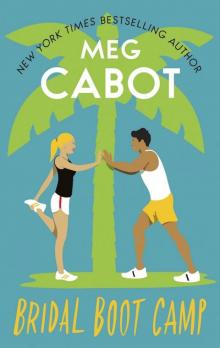 Bridal Boot Camp
Bridal Boot Camp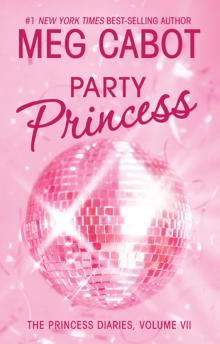 Party Princess
Party Princess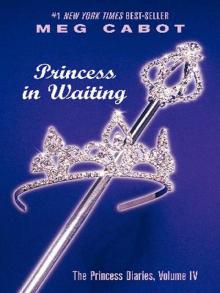 Princess in Waiting
Princess in Waiting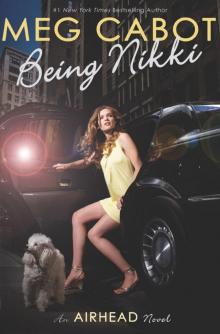 Being Nikki
Being Nikki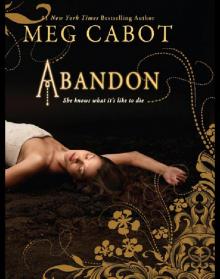 Abandon
Abandon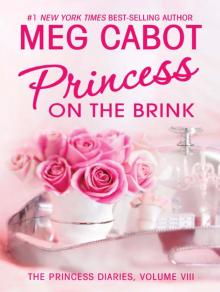 Princess on the Brink
Princess on the Brink Darkest Hour
Darkest Hour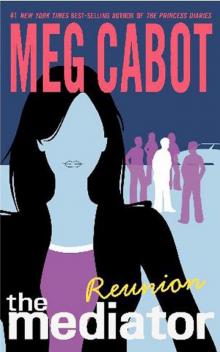 Reunion
Reunion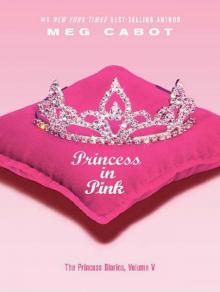 Princess in Pink
Princess in Pink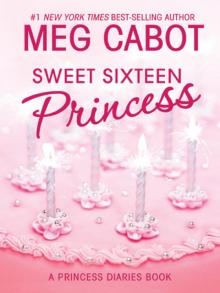 Sweet Sixteen Princess
Sweet Sixteen Princess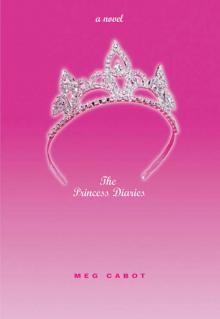 The Princess Diaries
The Princess Diaries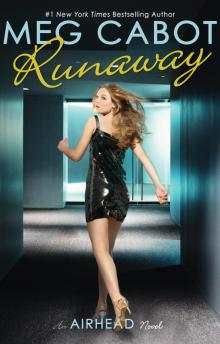 Airhead
Airhead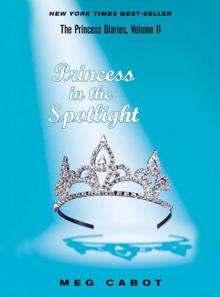 Princess in the Spotlight
Princess in the Spotlight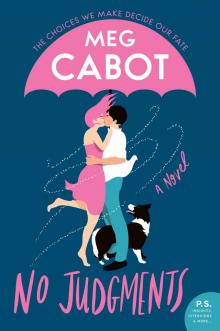 No Judgments
No Judgments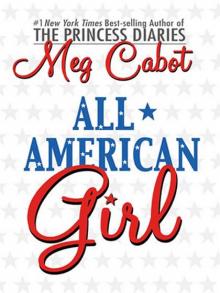 All-American Girl
All-American Girl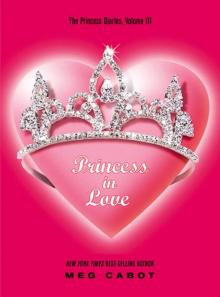 Princess in Love
Princess in Love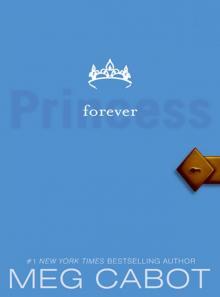 Forever Princess
Forever Princess Haunted
Haunted Shadowland
Shadowland Twilight
Twilight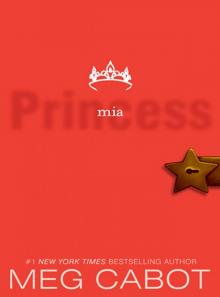 Princess Mia
Princess Mia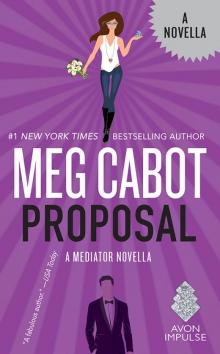 Proposal
Proposal Remembrance
Remembrance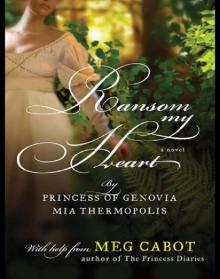 Ransom My Heart
Ransom My Heart Underworld
Underworld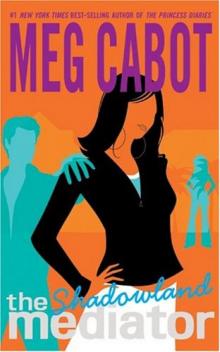 Shadowland tm-1
Shadowland tm-1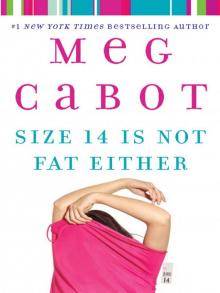 Size 14 Is Not Fat Either
Size 14 Is Not Fat Either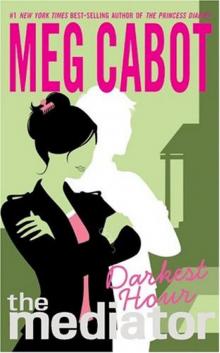 Darkest Hour tm-4
Darkest Hour tm-4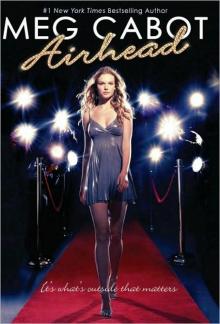 Airhead a-1
Airhead a-1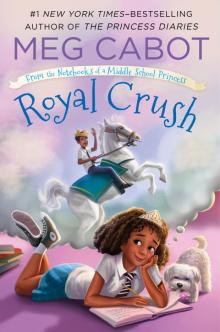 Royal Crush
Royal Crush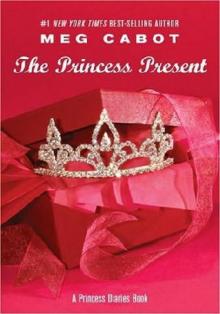 The Princess Present (princess diaries)
The Princess Present (princess diaries)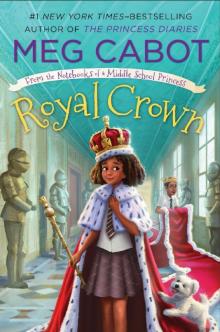 Royal Crown
Royal Crown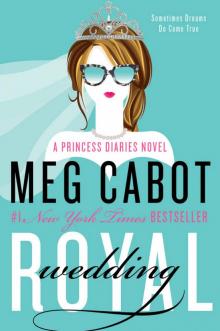 Royal Wedding: A Princess Diaries Novel (The Princess Diaries Book 11)
Royal Wedding: A Princess Diaries Novel (The Princess Diaries Book 11)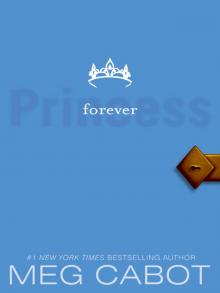 Princess Diaries, Vol. X: Forever Princess
Princess Diaries, Vol. X: Forever Princess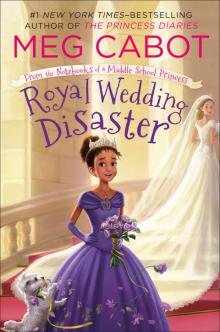 Royal Wedding Disaster
Royal Wedding Disaster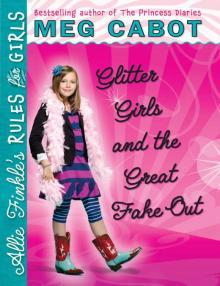 Allie Finkle's Rules for Girls: Glitter Girls and the Great Fake Out
Allie Finkle's Rules for Girls: Glitter Girls and the Great Fake Out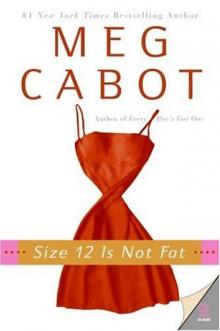 Size 12 Is Not Fat hwm-1
Size 12 Is Not Fat hwm-1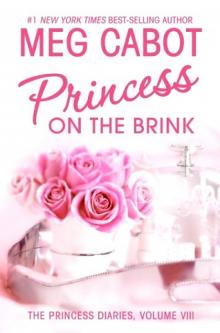 Princess on the Brink pd-8
Princess on the Brink pd-8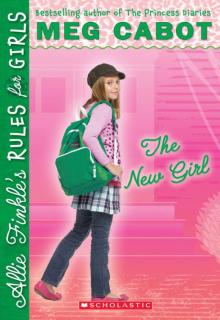 The New Girl
The New Girl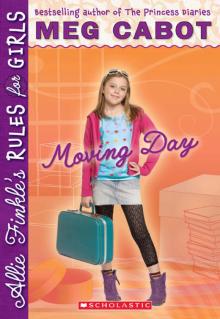 Allie Finkle's Rules for Girls: Moving Day
Allie Finkle's Rules for Girls: Moving Day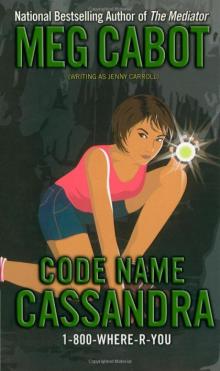 Code Name Cassandra
Code Name Cassandra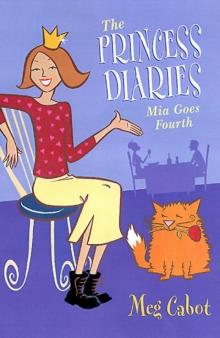 Mia Goes Fourth pd-4
Mia Goes Fourth pd-4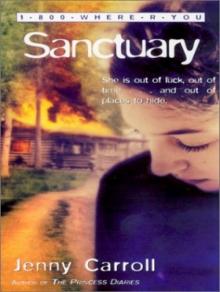 Sanctuary 1-4
Sanctuary 1-4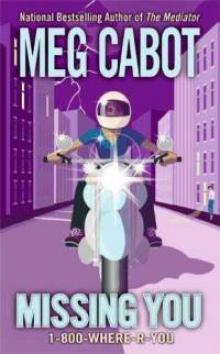 Missing You 1-5
Missing You 1-5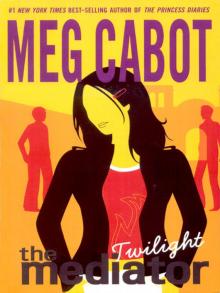 The Mediator 6: Twilight
The Mediator 6: Twilight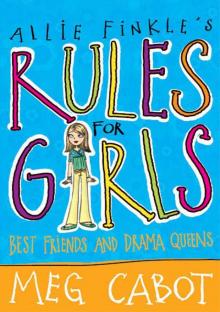 Allie Finkle's Rules for Girls: Best Friends and Drama Queens
Allie Finkle's Rules for Girls: Best Friends and Drama Queens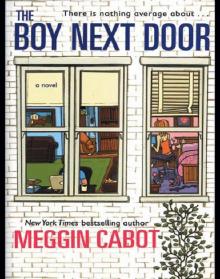 The Boy Next Door
The Boy Next Door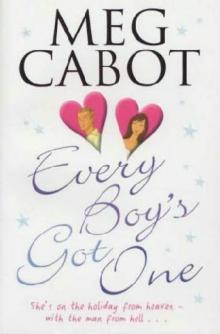 Every Boy's Got One
Every Boy's Got One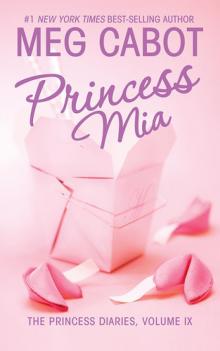 Princess Mia pd-9
Princess Mia pd-9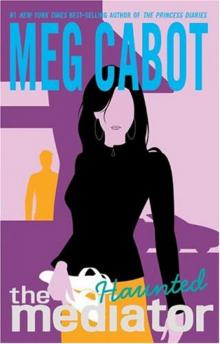 Haunted tm-5
Haunted tm-5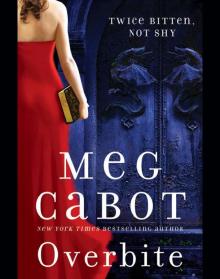 Overbite
Overbite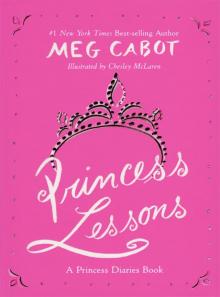 Princess Lessons
Princess Lessons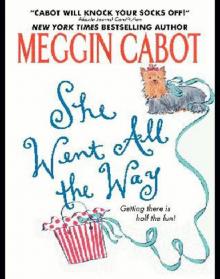 She Went All the Way
She Went All the Way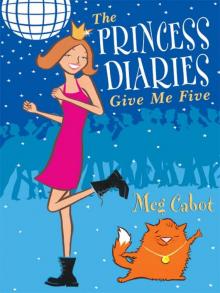 Give Me Five pd-5
Give Me Five pd-5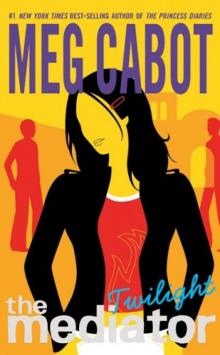 Twilight tm-6
Twilight tm-6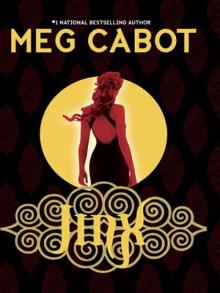 Jinx
Jinx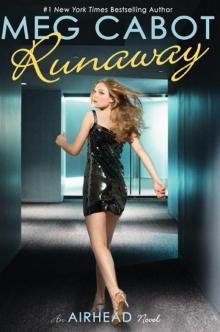 Runaway (Airhead #3)
Runaway (Airhead #3)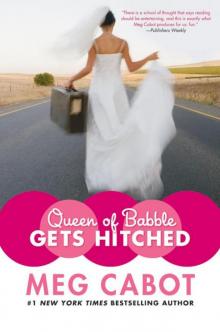 Queen of Babble Gets Hitched qob-3
Queen of Babble Gets Hitched qob-3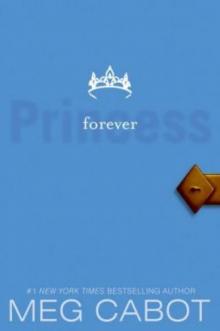 Forever Princess pd-10
Forever Princess pd-10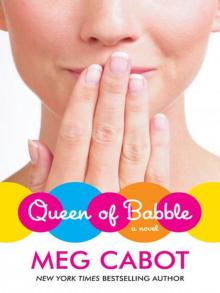 Queen of Babble
Queen of Babble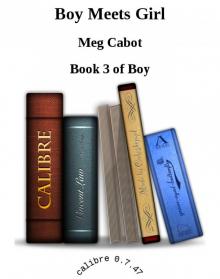 Boy Meets Girl b-3
Boy Meets Girl b-3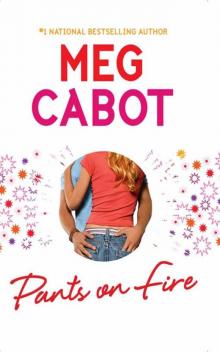 Pants on Fire
Pants on Fire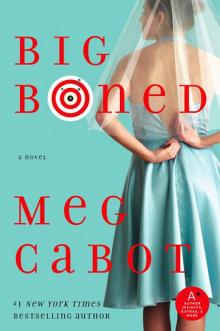 Big Boned ху-3
Big Boned ху-3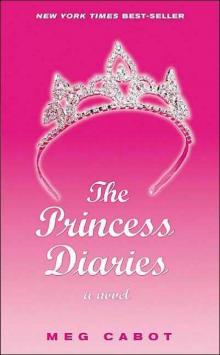 Princess' Diaries pd-1
Princess' Diaries pd-1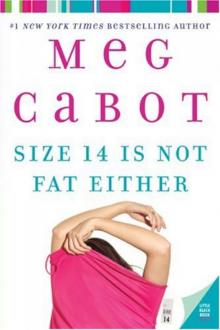 Size 14 Is Not Fat Either hwm-2
Size 14 Is Not Fat Either hwm-2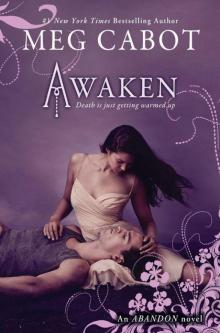 Awaken a-3
Awaken a-3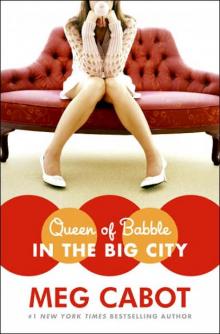 Queen Of Babble: In The Big City qob-2
Queen Of Babble: In The Big City qob-2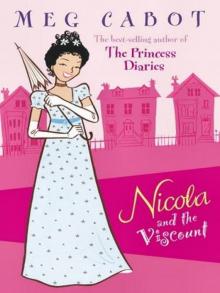 Nicola and the Viscount
Nicola and the Viscount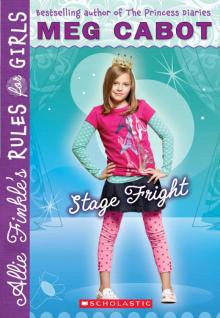 Allie Finkle's Rules for Girls: Stage Fright
Allie Finkle's Rules for Girls: Stage Fright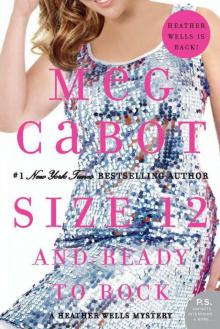 Size 12 and Ready to Rock
Size 12 and Ready to Rock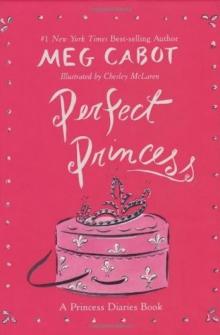 Perfect Princess
Perfect Princess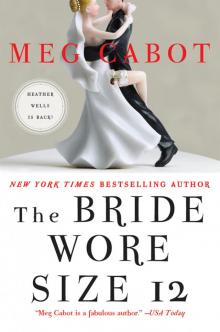 The Bride Wore Size 12
The Bride Wore Size 12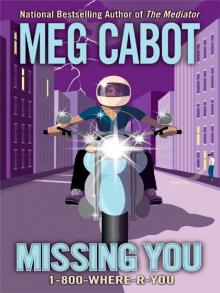 1-800-Where-R-You: Missing You
1-800-Where-R-You: Missing You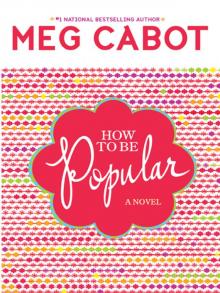 How to Be Popular
How to Be Popular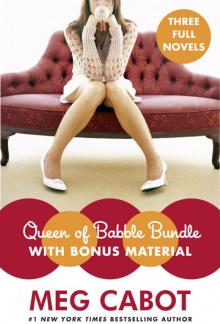 Queen of Babble Bundle with Bonus Material
Queen of Babble Bundle with Bonus Material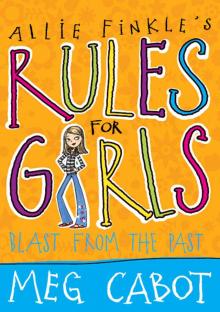 Allie Finkle's Rules for Girls: Blast from the Past
Allie Finkle's Rules for Girls: Blast from the Past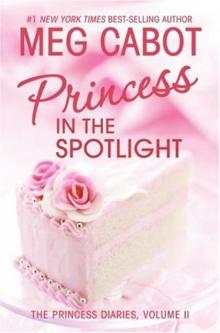 Princess in the Spotlight pd-2
Princess in the Spotlight pd-2 Ready or Not
Ready or Not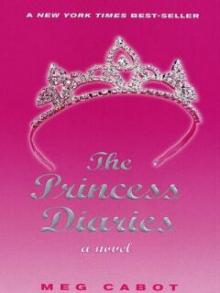 The Princess Diaries I
The Princess Diaries I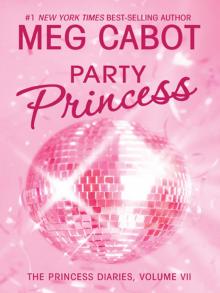 Party Princess pd-7
Party Princess pd-7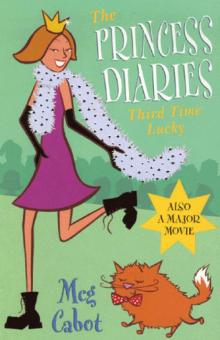 Third Time Lucky pd-3
Third Time Lucky pd-3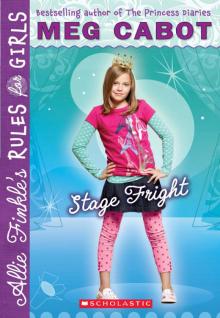 Stage Fright
Stage Fright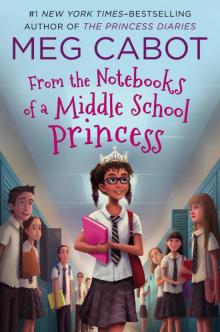 From the Notebooks of a Middle School Princess
From the Notebooks of a Middle School Princess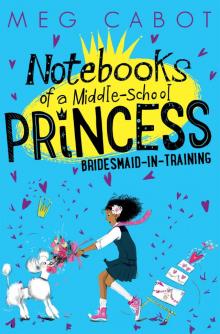 Notebooks of a Middle-School Princess Bridesmaid-in-Training
Notebooks of a Middle-School Princess Bridesmaid-in-Training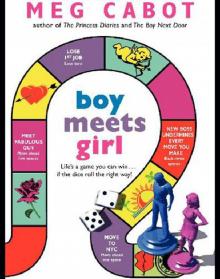 Boy Meets Girl
Boy Meets Girl Missing You
Missing You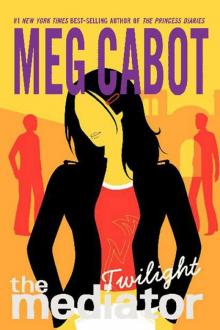 The Twilight
The Twilight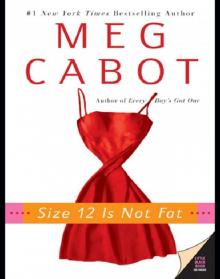 Size 12 Is Not Fat
Size 12 Is Not Fat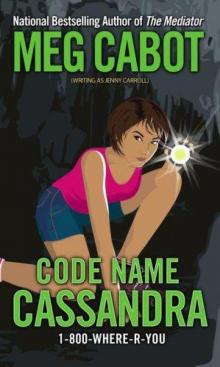 Code Name Cassandra 1-2
Code Name Cassandra 1-2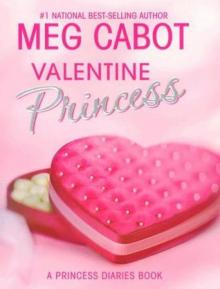 Valentine Princess
Valentine Princess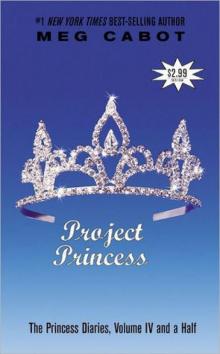 Project Princess
Project Princess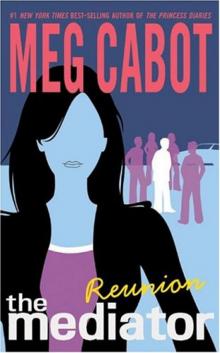 Reunion tm-3
Reunion tm-3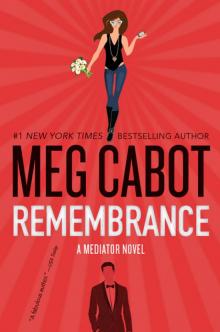 Remembrance: A Mediator Novel
Remembrance: A Mediator Novel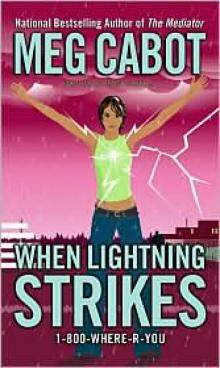 When Lightning Strikes 1-1
When Lightning Strikes 1-1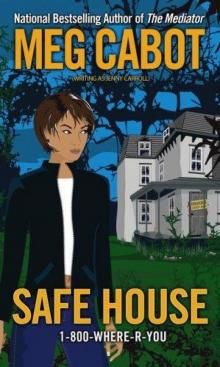 Safe House 1-3
Safe House 1-3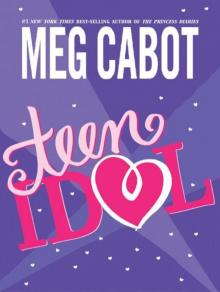 Teen Idol
Teen Idol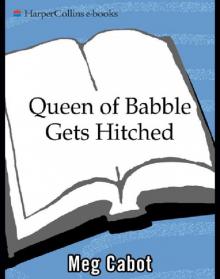 Queen of Babble Gets Hitched
Queen of Babble Gets Hitched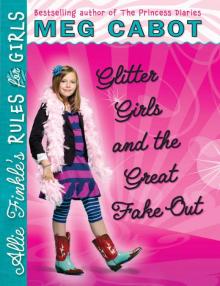 Glitter Girls and the Great Fake Out
Glitter Girls and the Great Fake Out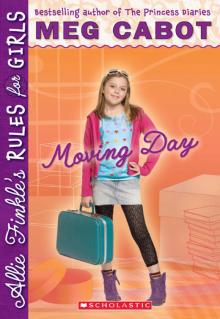 Moving Day
Moving Day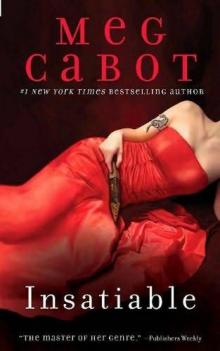 Insatiable
Insatiable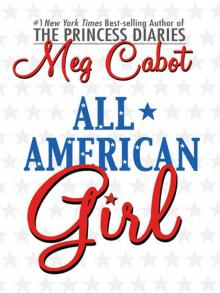 All American Girl
All American Girl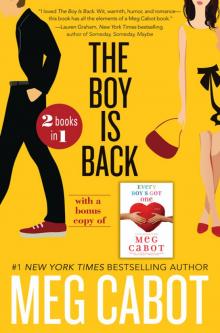 The Boy Is Back + Every Boy's Got One Bundle
The Boy Is Back + Every Boy's Got One Bundle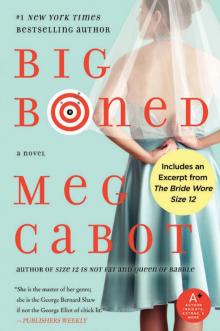 Big Boned
Big Boned Awaken
Awaken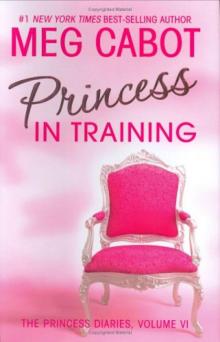 Princess in Training pd-6
Princess in Training pd-6